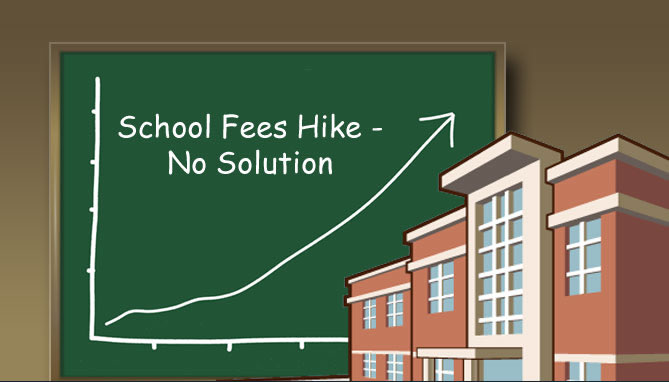Unpacking school fees top-up matrix

Tanaka Mahanya Features Writer
As has become the norm, some boarding schools have increased fees during the course of the term due to the economic dynamics that have affected all sectors in the country.
At a time when parents feel they are done with their children’s fees, schools demand more to add on to the already stipulated amount at the beginning of the term.
The main reason behind fees top-ups is the unstable economic situation which has led to an increase in food prices, among many things, beyond what the schools would have initially budgeted for.
When schools decide on school fees for the coming term, they would not have anticipated that prices of basic commodities would shoot up.
At certain institutions, parents have been asked to add about a third of the initial school fees because the schools could no longer afford to provide sufficient groceries.
The top-up fees required are equivalent to some people’s salaries, which makes it harder for some parents who would not have been able to pay the initial fees in full.
Even though most parents acknowledge the rise in consumer goods prices, top-up fees are a burden to them as most of them have not received a pay rise at their companies.
Mrs Chigumbura, a parent with a child in boarding school told The Herald that school fees top-ups are impacting on them negatively, as they would have no money budgeted for that.
“This is becoming really hard for us because we have other children who need to go to school and we need to eat as well. We cannot afford that”, she said.
Another parent Mr Manhongo said school fees top-ups were draining their already shallow pockets, as bus fares and fuel prices continue to rise on a daily basis.
Although the country is not economically stable, asking parents to pay top-up fees in the middle of the term may not be proper, as institutions have to be prepared for such.
They should have supplementary sources of food in the event that unforeseen challenges crop up.
Schools should have farms to grow their own maize, beans and horticultural products so that they do not have to fork out money all the time.
Animal rearing projects also ensure that at least schools do not have to spend on beef, pork, chicken and eggs, thus reducing expenses.
Some schools have started making parents buy groceries at the beginning of every term as a way of reducing groceries’ costs, which is quite unfair on the part of parents considering the cost of basic commodities.
What will school fees be used for if parents provide groceries?
The iniquitous part is that parents are urged to pay with immediate effect without considering that they also have other things to take care of.
Failure to pay top-up fees sometimes leads to children being barred from the dining sessions as their parents would have failed to meet the school’s demands.
This has led to some parents refusing to pay top-up fees, arguing that there is no reason to do so if their children are not being fed, especially those writing public examinations, who would soon be off the schools’ premises.









Comments